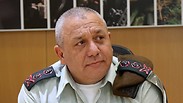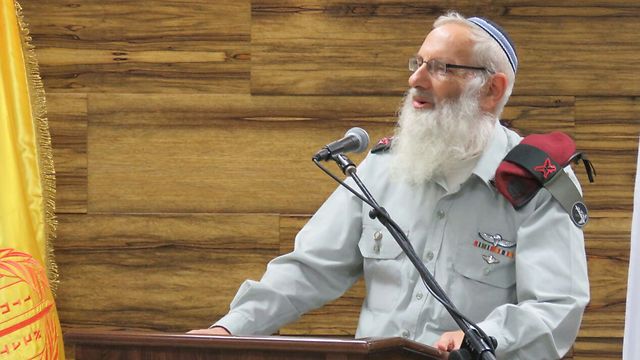
About a year after it came into effect and amid objections from rabbis, politicians, women's organizations and senior reserve officers, IDF Chief of Staff Lt. Gen. Gadi Eisenkot approved Tuesday several updates to the Joint Service Ordinance.
In contrast to the demands of religious elements, the clause requiring enlisted soldiers to serve in mixed gender combat units was not annulled, but was eased.
The new clause states that if a religious officer or non-commissioned officer (NCO) is assigned to serve in a mixed gender combat unit, such as the Caracal Battalion, he may submit a request for re-examination of his placement before it takes effect, and the head of the Manpower Directorate will examine his application.
The section is irrelevant for conscripts, who are given the option of choosing to opt out of co-ed service prior to enlistment.
Additionally, a sentence was redacted from the original order that stated that army service should be "not by way of separation between male and female soldiers," a controversial decree that was resented by religious groups.
The order will not affect ultra-Orthodox soldiers who are excluded from it and will continue to enjoy the special conditions and separations intended for them throughout their service.
In addition, during war or emergency, large parts of the order will not apply, and the only consideration, such as male and female soldiers sleeping together in the same room or compound, will be made solely based on "Pikuach Nefesh" (preservation of human life overring virtually any other religious consideration).
Regarding the clause that obliges career soldiers to serve in mixed gender combat units, whether they are religious or not, the IDF explained that it has different expectations from career soldiers than from conscripts, and that there are already religious officers serving in mixed gender battalions, such as Lt. Col. Nir Dupat, who commands one.
The IDF also noted that the Chief Military Rabbi, Brig. Gen. Eyal Karim, agreed to the order.
"The IDF is the people's army, it is a state institution, and it must allow all those who serve in it to serve regardless of their religion, faith or gender," said IDF Spokesman Ronen Manelis, who added that while "the previous situation was convenient for the chief of staff, as no one attacked him," it was ultimately "bad for the units."
"The principles have not changed and the clarifications we have made are derived from needs we have discovered," Manelis asserted, going on to criticize the government's outspokenness on the matter: "Outside voices, such as ministers and MKs, various organizations, rabbis and reserve officers, thought they should intervene in this matter. Some of them wanted to 'save the IDF' from itself, while some acted in good faith."
The representatives of religious Zionist rabbis welcomed the changes.
"The main changes made at our request are the cancellation of the decree at the beginning of the order ruling that the army should never separate men and women, as well as the change of the officer clause (allowing them to submit a request for transfer) and the removal of the option to place an officer against his will in mixed gender units," they said in a statement.
"The chief of staff's decision to update the wording of the Joint Service Ordinance is an important step that allows all IDF soldiers to serve in the army while preserving their faith and way of life. We express our appreciation for this," they concluded, thanking the Chief Military Rabbi "for his significant part in this important dialogue."
Yeshiva leaders and senior rabbis met last month with Eisenkot and demanded that he change the Joint Service Ordinance. They argued at the time that the new order allowed mixing of the sexes in army bases, contrary to halachah, and thus infringed on the rights of religious male and female soldiers. At the end of the meeting, the rabbis reported that the chief of staff had promised them to examine the matter.


















